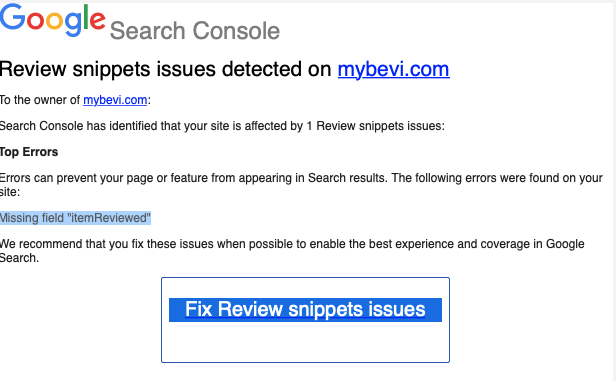Are you tired of paying high utility bills every month? One way to reduce your monthly expenses is by finding a rental property with low utility costs. With the right research and preparation, you can find a rental property that is both affordable and energy-efficient.
In this ultimate guide, we will explore the key factors to consider when searching for a rental property with low utility costs. We will cover everything from location and orientation to energy-efficient appliances and smart home technology.
Finding Rental Properties with Low Utility Costs: By the end of this guide, you will have the knowledge and tools to find a rental property that meets your needs and saves you money on your utility bills. So let's dive in and start exploring the world of energy-efficient finding rental properties.
Energy-Efficient Appliances: The Key to Lower Utility Costs
Energy-efficient appliances are key to reducing your utility bills and environmental impact. In this guide, we’ll explore the importance of energy-efficient appliances and provide tips for selecting the right appliances for your home.
What are Energy-Efficient Appliances?
Energy-efficient appliances use less energy than standard appliances, reducing energy consumption and lowering utility bills. They are designed to operate more efficiently and effectively, using less energy to produce the same result as standard appliances. Energy-efficient appliances are often labeled with an Energy Star certification, which indicates they meet strict energy-efficiency guidelines set by the U.S. Environmental Protection Agency (EPA).
Benefits of Energy-Efficient Appliances
There are several benefits to using energy-efficient appliances in your home. First and foremost, energy efficient appliances reduce your energy consumption, which translates to lower utility bills. They can also help reduce your environmental impact by lowering your carbon footprint. Using less energy reduces the demand for energy production, which can help reduce greenhouse gas emissions.
Energy Efficient Appliances to Consider
When selecting energy-efficient appliances, there are several factors to consider. Here are some appliances to consider:
Refrigerators:
Refrigerators are one of the most energy-intensive appliances in your home. Look for a refrigerator with an Energy Star certification and consider the size and layout of the refrigerator to ensure it meets your needs.
Washing Machines:
Energy-efficient washing machines use less water and energy than standard models. Look for a washing machine with a high Energy Factor (EF) rating, which indicates the machine's efficiency.
Dryers:
Energy-efficient dryers use less energy to dry clothes than standard models. Look for a dryer with a moisture sensor, which automatically turns off the dryer when clothes dry.
Dishwashers:
Energy-efficient dishwashers use less water and energy than standard models. Look for a dishwasher with an Energy Star certification and a high-efficiency rating.
Air Conditioners:
Energy-efficient air conditioners use less energy to cool your home than standard models. Look for a unit with a high Seasonal Energy Efficiency Ratio (SEER) rating, which indicates the unit's efficiency.
Other Tips for Energy Efficiency
While energy-efficient appliances are an important component of reducing your utility bills, there are other steps you can take to increase energy efficiency in your home. Consider the following tips:
- Replace incandescent bulbs with LED bulbs, which use less energy and last longer.
- Install a programmable thermostat, which allows you to control your heating and cooling system more efficiently.
- Use power strips to turn off electronics when not in use, reducing standby power consumption.
- Install low-flow showerheads and faucets to reduce water consumption.
- Ensure your home is properly insulated to reduce energy waste.
Location Matters: How Orientation Impacts Your Utility Bills
The location and orientation of your home have a significant impact on your utility bills. Properly orienting your home can reduce energy consumption and lower utility bills. In this guide, we will explore how location matters and how the orientation of your home impacts your utility bills.
North-South Orientation
A north-south orientation is the most energy-efficient orientation for your home. This orientation maximizes the amount of natural light and solar heat gain during the winter months while minimizing solar heat gain during the summer months.
Optimizing natural light and heat gain can reduce your reliance on artificial lighting and heating, lowering energy consumption and utility bills.
East-West Orientation
An east-west orientation can be more challenging to manage. This orientation maximizes solar heat gain during the morning and evening hours but can also lead to excessive solar heat gain during summer. Proper shading is critical to managing solar heat gain in an east-west-oriented home. You can use shading devices such as curtains, blinds, and shades to manage solar heat gain and reduce energy consumption.
Other Factors to Consider
When considering the orientation of your home, there are other factors to consider beyond solar heat gain and natural light. Wind patterns, topography, and neighboring structures can all impact your home's energy efficiency.
If your home is in a windy area, you may need to consider windbreaks or other measures to reduce wind infiltration. If your home is located in a hilly area, you may need to consider the impact of topography on your home’s energy efficiency. Additionally, neighboring structures can impact your home’s solar access and energy efficiency.
Smart Home Technology
Another way to optimize your home's energy efficiency is by using smart home technology. Smart thermostats, lighting, and appliances can help you reduce your energy consumption and lower utility bills.
By using these devices, you can monitor and control your energy usage in real time, which can help you identify areas where you can save energy and money.
Negotiating with Landlords: How to Low Your Utility Costs
When renting a property, tenants' monthly utility bills are one of the most significant expenses. These bills can quickly add up, causing financial strain for many renters. Fortunately, there are ways to negotiate with landlords to lower your utility costs.
This guide will explore negotiating with landlords to lower your utility costs.
Know Your Rights
Before you start negotiating with your landlord, knowing your rights as a tenant is essential. Landlords must provide tenants access to essential utilities such as water, gas, and electricity in many states. Additionally, some states have laws limiting how much landlords can charge for utilities. Knowing your rights can help you negotiate more effectively with your landlord.
Do Your Research
To negotiate with your landlord effectively, you need to do your research. Start by researching the average utility costs in your area. This information will give you a baseline for what you should be paying. Additionally, research energy-efficient appliances and practices that can help you lower your utility costs. This information will help you make a compelling case for why your landlord should lower your utility costs.
Make a Plan
Once you have done your research, make a plan for how you will negotiate with your landlord. Start by drafting a letter or email outlining your case for lower utility costs. Be sure to include data on the average utility costs in your area and any energy-efficient practices or appliances you are using. Additionally, be clear about the specific amount you request your landlord to lower your utility costs.
Schedule a Meeting
Once you have drafted your letter or email, schedule a meeting with your landlord to discuss your request. Be sure to bring a copy of your research and plan to the meeting. During the meeting, be respectful and professional. Be clear about why you request lower utility costs and how it will benefit you and your landlord.
Consider Alternative Solutions
Consider alternative solutions if your landlord is unwilling to lower your utility costs. For example, you may be able to negotiate a shorter lease term or a lower rent price in exchange for paying higher utility costs. Alternatively, you may be able to negotiate a rent increase cap that considers the cost of utilities.
Insulation Matters: Why Proper Insulation Can Save You Money
Proper insulation is essential for any home or building. Not only does it help regulate temperature, but it can also save you money on your energy bills. In this guide, we will explore why insulation matters and how proper insulation can save you money.
Understanding Insulation
Insulation is a material that reduces heat transfer between the inside and outside of a building. It can be made from various materials, including fiberglass, cellulose, and foam.
Insulation is typically installed in the walls, floors, and ceilings to help regulate temperature and reduce energy consumption.
The Benefits of Proper Insulation
Proper insulation can provide a range of benefits for homeowners and building owners.
Some of the key benefits include:
Reduced energy consumption:
Proper insulation can help regulate the temperature inside a building, reducing the need for heating and cooling systems. This can significantly reduce energy consumption and save money on energy bills.
Increased comfort:
Insulation can help maintain a consistent temperature inside a building, making it more comfortable for occupants.
Improved indoor air quality:
Proper insulation can also help reduce the amount of outside air that enters a building, improving indoor air quality.
Increased resale value:
A home or building with proper insulation can have a higher resale value than one without, as many buyers consider it a desirable feature.
How Insulation Can Save You Money
Proper insulation can save you money in several ways. First, as mentioned above, it can reduce energy consumption and lower monthly energy bills. Second, it can help extend the life of your heating and cooling systems, as they won't have to work as hard to maintain a consistent temperature.
This can save you money on repairs and replacement costs. Finally, proper insulation can help prevent moisture buildup inside a building, leading to mold and other costly problems.
Choosing the Right Insulation
Choosing the proper insulation for your home or building is essential. Factors to consider include the type of insulation, the R-value (a measure of the insulation's ability to resist heat flow), and the location where the insulation will be installed.
It's essential to consult a professional to ensure you choose the right insulation for your specific needs.
Inspecting and Maintaining Your Insulation
Once the insulation is installed, inspecting and maintaining it regularly is essential. Insulation can become damaged or degraded over time, reducing effectiveness. Regular inspections and maintenance can help ensure that your insulation continues to provide maximum benefits.
Smart Home Technology: The Future of Energy-Saving Rentals
As technology continues to advance, the way we live is changing rapidly. One of the most exciting areas of innovation is in the home, where smart technology is helping us to live more energy-efficiently. In this guide, we'll explore the benefits of smart home technology and how it can be used to create energy-saving rentals.
What is Smart Home Technology?
Smart home technology refers to using devices and systems that can be controlled remotely via a smartphone or other device. These devices are typically connected to the internet and can be programmed to perform various functions, such as adjusting the temperature, turning lights on and off, or even locking doors.
Benefits of Smart Home Technology
There are many benefits to using smart home technology in finding rental properties.
Some of the key benefits include:
Energy efficiency:
Smart home technology can be programmed to adjust heating and cooling systems, turn off lights when not in use, and even manage energy usage during peak times.
Increased security:
Smart home technology can monitor and control security systems, such as cameras and alarms.
Cost savings:
By reducing energy usage and improving security, smart home technology can help reduce costs for landlords and tenants.
Convenience:
Smart home technology can make it easier and more convenient for tenants to control various aspects of their rental property.
Types of Smart Home Technology
Many different types of smart home technology can be used in finding rental properties.
Some of the most popular include:
Smart thermostats:
These devices can be programmed to adjust the temperature based on the time of day, occupancy, and other factors.
Smart lighting:
These systems can be controlled remotely and programmed to turn lights on and off at specific times or respond to other triggers.
Smart locks:
These devices can lock and unlock doors remotely and provide access to specific individuals at specific times.
Smart appliances:
These devices can be programmed to operate more efficiently, reducing energy usage and costs.
Implementing Smart Home Technology
Implementing smart home technology in finding rental properties can be a complex process. Landlords should work with experienced professionals to select and install the right systems for their properties and ensure tenants are properly educated on how to use them.
It's also important to consider the potential privacy concerns associated with these systems and to take steps to protect tenants' personal information.
Conclusion:
In conclusion, smart home technology is a game-changer for the rental industry. It offers numerous benefits, including energy efficiency, cost savings, increased security, and tenant convenience.
By investing in innovative home technology, landlords can create more sustainable and secure finding rental properties while providing tenants with a better living experience. As technology continues to evolve, the potential for innovative home technology in finding rental properties is unlimited.
By embracing these innovations, landlords can stay ahead of the curve and create a more sustainable future for their properties and tenants.
Frequently Asked Questions (FAQ):
How can I find finding Rental Properties with Low Utility Costs?
Consider location, orientation, insulation, and energy-efficient appliances to find Rental Properties with Low Utility Costs. Look for properties with a good Energy Star rating and ask the landlord for utility bills from previous tenants to gauge the cost of utilities.
How can I negotiate with my landlord to lower my utility costs?
Start by asking your landlord about their energy-saving practices and if they offer any incentives for tenants who reduce their energy usage. You can also propose installing energy-efficient appliances, adjusting the thermostat, or upgrading insulation in exchange for a reduction in rent or utility costs.
How does proper insulation impact utility costs?
Proper insulation helps maintain a comfortable temperature in the home, reducing the energy required to heat or cool the space. Good insulation also prevents air leaks, which can significantly increase utility costs. By installing proper insulation, tenants can reduce their energy usage and save money.
What are some energy-efficient appliances that can lower utility costs?
Some energy-efficient appliances that can help lower utility costs include refrigerators, washing machines, dryers, and dishwashers. Look for appliances with a good Energy Star rating, which signifies they meet strict energy efficiency guidelines.
How can smart home technology help me save on utility costs?
Smart home technology can help tenants save on utility costs by enabling them to control their energy usage remotely. Devices such as smart thermostats, lighting systems, and appliances can be programmed to automatically adjust usage based on occupancy and time of day, reducing energy consumption and costs. Additionally, innovative home technology can provide insights into energy usage, enabling tenants to identify areas further to reduce their energy consumption.








